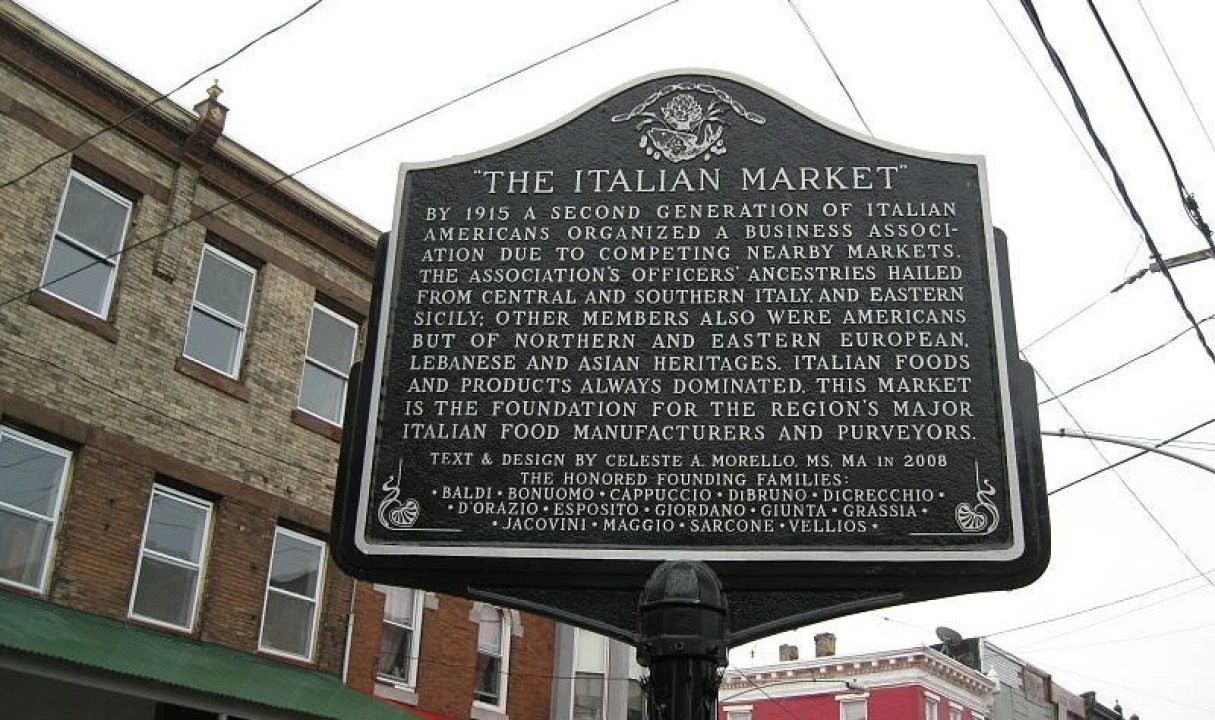The recent public debate over whether to rename South Philadelphia's Italian Market has largely missed the point. There seems to be some confusion over what the name of the historic Ninth Street corridor of shops, restaurants, and curbside vendors means to Philadelphians who coined the moniker.
Perhaps adding to the confusion is the fact that the Italians there traditionally have called it the Ninth Street Market.
Granted, in recent decades, immigrant shopkeepers from countries other than Italy have found a home there, just as Italian immigrants have since the 1880s. But the market's predominant flavor remains Italian, and its most prominent merchants are Italian Americans. That's the reason it continues today to be a lively, heritage-rich destination for devoted customers and tourists.
At the Italian Market, the nation's oldest and largest outdoor marketplace, you'll find such institutions as Esposito's Meats, founded in 1911 by Attilio Esposito, whose grandsons, Lee and Lou, still man the counter.
At D'Angelo Bros. butcher shop, here more than 100 years, Sonny D'Angelo carries on the craftsmanship of six generations of butchers, dating back to his family's Sicilian roots.
For cheese, customers crowd into Di Bruno Bros. and Claudio King of Cheese; for classic Italian produce, it's Giordano's; for kitchenware, century-old Fante's.
Geno's Steaks vs. Pat's King of Steaks? Founded in 1930, Pat's is credited with inventing the steak sandwich, while Geno's, opened in 1966, started a cheesesteak rivalry that put Philadelphia's signature dish on the map nationwide.
Stories like these line Ninth Street.
That's the underlying meaning of the "Italian Market." It's a microcosm of America's immigrant success story, of generation after generation arriving here in search of a better life - and not just Italians.
Immigrants of Spanish, Portuguese, Chinese, Vietnamese, and Caribbean descent, among others, have come in search of the same thing. Immigrant struggles today are the same as those of yesteryear. And the lessons those Italian immigrants learned back then remain relevant to today's immigrants.
One columnist writing on the topic stated: "Big props to the Italian immigrants who built such a lasting legacy." And, in fact, to all our immigrant forefathers of all nationalities who left their homelands, and struggled and sacrificed to achieve the American Dream. They built this nation, and deserve our gratitude and lasting respect. Emphasis on the word lasting.
Look, ethnic demographics of neighborhoods change, especially in immigrant enclaves, whether the community is named Chinatown, Corktown (Irish), Little Saigon, Germantown, or, yes, Little Italy. But the neighborhood names don't change. So why change the Italian Market?
As one clever person online put it, "Philadelphia is clearly no longer the City of Brotherly Love, so let's change that, too."
But the names mean something larger and more important than how accurately they reflect today's reality. Philadelphia's Italian Market may not be quite what it was once, but it's still a neighborhood whose legacy will never change. Neither should its name.
by Joseph Del Raso



